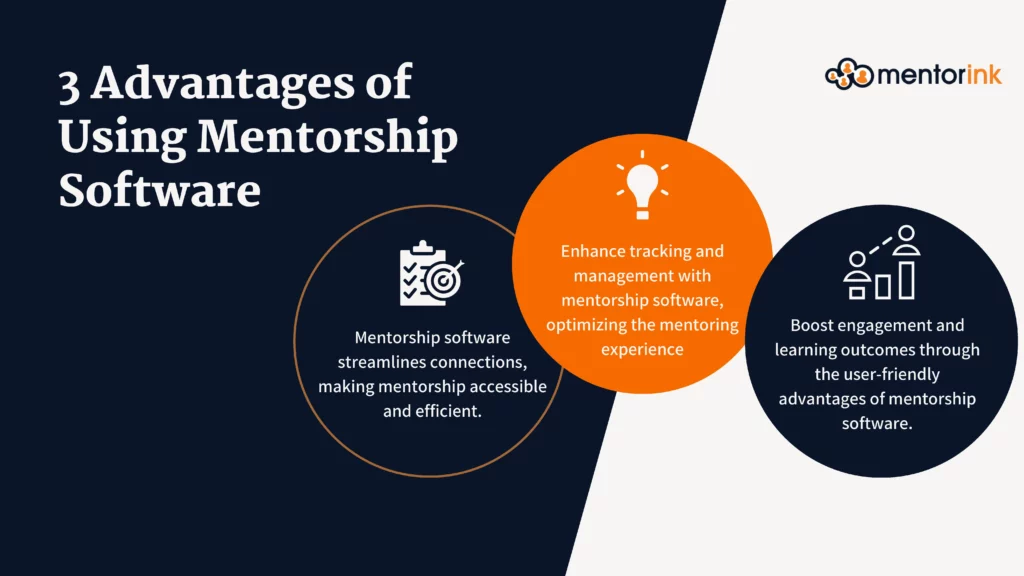
In today’s fast-paced corporate world, the advantages of using mentorship software are becoming increasingly evident. This technology-driven approach is revolutionizing how mentorship is facilitated, offering unparalleled benefits. Let’s delve into these advantages. For more insights, visit our article on the benefits of virtual mentoring.
Accurate Mentor-Mentee Matching
One of the foremost benefits of mentorship software is its ability to pair mentors and mentees accurately. This is crucial for:
- Tailored Matches: Software algorithms consider factors like skills, goals, and personality traits, ensuring compatible and fruitful pairings.
- Efficiency: Automated matching saves time and resources, eliminating the guesswork and manual effort typically involved in the process.
- Increased Success Rates: Accurate pairing leads to more successful mentoring relationships, as evidenced by higher satisfaction rates among participants.
This aspect of mentorship software plays a significant role in the effectiveness of mentoring programs within organizations.
Better Visibility and Reporting
Enhanced visibility and reporting are vital components offered by mentorship software:
- Tracking Progress: Software allows for the monitoring of mentoring relationships, providing valuable insights into their progress and outcomes.
- Data-Driven Decisions: Access to comprehensive reports aids in making informed decisions regarding the future direction of mentorship programs.
- Measurable Impact: The ability to track key metrics ensures that the mentorship program’s impact on individual and organizational goals is quantifiable.
This improved visibility and reporting aspect is instrumental in validating the effectiveness of mentorship initiatives.
Increased Employee Engagement via Mentoring Software
Mentoring software significantly boosts employee engagement:
- Personalized Learning: Employees feel more invested in a program that caters to their individual development needs.
- Sense of Community: The software fosters a community of learning and growth, enhancing employee connectivity and belonging.
- Empowerment: Access to mentorship empowers employees, leading to higher motivation and job satisfaction.
These factors collectively contribute to a more engaged and productive workforce.
Conclusion
The use of mentorship software in organizations brings forth undeniable advantages, from precise mentor-mentee matching and enhanced reporting capabilities to significantly increased employee engagement. These benefits not only streamline mentoring processes but also enrich the overall organizational culture.


